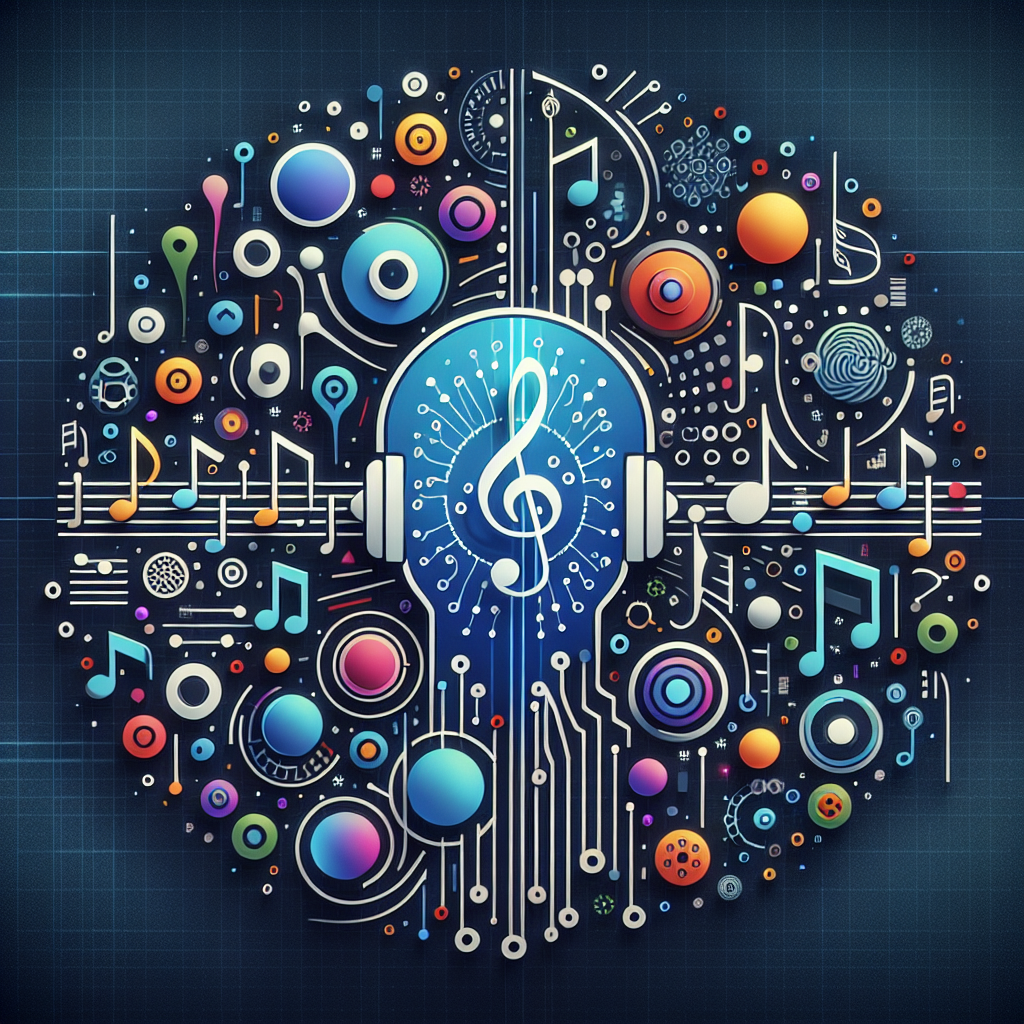Music has always been a powerful and influential force in human life. It has the ability to evoke emotions, trigger memories, and even improve cognitive functions. The effects of music on the brain have long been studied, but with the advent of artificial intelligence (AI), researchers are now able to delve even deeper into understanding the cognitive effects of music.
AI technology has revolutionized many fields, including music. With the help of AI algorithms and machine learning, researchers can analyze massive amounts of data to uncover patterns and insights that were previously inaccessible. This has opened up new possibilities for understanding how music impacts the brain and how it can be used to improve cognitive functions.
One of the key ways in which AI can help us understand the cognitive effects of music is through neuroimaging studies. Neuroimaging techniques such as functional magnetic resonance imaging (fMRI) and electroencephalography (EEG) allow researchers to observe the brain in real-time while subjects are listening to music. By analyzing the data collected from these studies, AI algorithms can identify patterns and correlations between brain activity and music listening, providing valuable insights into how music affects different regions of the brain.
For example, a study conducted by a team of researchers at the University of Helsinki used AI algorithms to analyze fMRI data collected from participants while they listened to music. The researchers found that certain brain regions were more active when participants listened to music that they found emotionally engaging, suggesting that music has a direct impact on emotional processing in the brain.
AI can also help us understand the cognitive effects of music by analyzing large datasets of music listening habits. By examining patterns in music preferences and behaviors, AI algorithms can identify correlations between music listening habits and cognitive functions such as memory, attention, and creativity. This information can help researchers better understand how music influences cognitive processes and how it can be used to enhance cognitive functions in different populations.
In addition to understanding the cognitive effects of music, AI can also be used to create personalized music therapy interventions. Music therapy has been shown to be effective in treating a variety of cognitive and emotional disorders, including dementia, depression, and anxiety. By using AI algorithms to analyze individual preferences and responses to music, therapists can tailor music therapy interventions to the specific needs of each patient, maximizing the therapeutic benefits of music.
Despite the potential of AI to help us understand the cognitive effects of music, there are still many challenges that researchers face. One of the main challenges is the complexity of the human brain and the variability in individual responses to music. While AI algorithms can analyze large datasets and identify patterns, they may struggle to capture the nuances and subtleties of human emotion and cognition.
Another challenge is the ethical implications of using AI in music research. As AI technology becomes more advanced, researchers must grapple with questions of privacy, consent, and the potential for bias in AI algorithms. It is important for researchers to approach AI research in music with caution and to prioritize ethical considerations in their work.
Despite these challenges, the potential of AI to help us understand the cognitive effects of music is vast. By combining the power of AI technology with the insights of neuroscience and psychology, researchers can gain a deeper understanding of how music impacts the brain and how it can be used to improve cognitive functions. As AI continues to advance, we can expect to see even more groundbreaking discoveries in the field of music cognition.
Frequently Asked Questions (FAQs):
1. Can AI accurately predict how music will affect an individual’s cognitive functions?
While AI algorithms can analyze patterns and correlations in large datasets, they may struggle to accurately predict how music will affect an individual’s cognitive functions. Factors such as personal preferences, mood, and past experiences can all influence how music impacts the brain, making it difficult for AI to provide precise predictions.
2. How can AI be used in personalized music therapy interventions?
AI can be used to analyze individual preferences and responses to music, allowing therapists to tailor music therapy interventions to the specific needs of each patient. By creating personalized playlists and interventions based on AI analysis, therapists can maximize the therapeutic benefits of music therapy for their patients.
3. What are some of the ethical considerations in using AI in music research?
Ethical considerations in using AI in music research include issues of privacy, consent, and potential bias in AI algorithms. Researchers must ensure that they have the appropriate permissions to collect and analyze data, and that they prioritize the well-being and autonomy of their research subjects. Additionally, researchers must be aware of the potential for bias in AI algorithms and take steps to mitigate any biases that may arise.
4. How can AI technology help us better understand the cognitive effects of music in different populations?
AI technology can analyze large datasets of music listening habits and cognitive functions in different populations, allowing researchers to identify correlations and patterns that may not be apparent through traditional research methods. By studying how music affects cognition in diverse populations, researchers can gain a more comprehensive understanding of the cognitive effects of music and how it can be used to improve cognitive functions in different groups.

